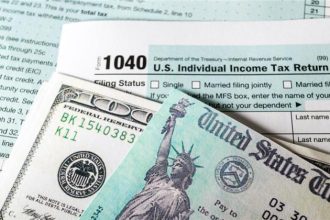Credit Sesame’s personal finance news roundup June 22, 2024. Stories, news, politics and events impacting personal finance during the past week.
Auto loans often perpetuate debt burdens
The Consumer Financial Protection Bureau has issued a detailed analysis of the market for auto loans in the US. There are currently 100 million such loans, representing $1.6 trillion in debt. The report found that people often prolong their indebtedness by financing negative equity on old cars when they trade them in to buy new ones. 11.6% of auto loans studied included money owed on a trade-in in the balance of the new loan. Consumers who did this were more likely to have their new cars subject to repossession within two years. Also, this practice resulted in larger monthly payments on loans than financing purchases that had no trade-in or a trade-in with positive value. See report at ConsumerFinance.gov.
Consumer preference for credit cards has grown
A study by the Federal Reserve Bank of Atlanta found that from 2015 to 2023, consumers’ preference for using credit cards over other payment methods has increased. This is despite the fact that credit cards are often more expensive to use than other payment methods, such as checks, debit cards, and cash. The use of credit cards for online purchases is up by 6 percentage points since 2015, to 57%. Preference for credit cards when making in-person purchases is up by 8 percentage points to 36%. When paying bills, credit card usage has increased by 8 percentage points to 18%. 47% of credit card users pay interest on their charges because they do not pay their balances off in full every month. See highlights at AtlantaFed.org.
Easier to buy a home in 2024 than in the 1980s
A study by the National Association of Realtors found that although rising home prices and mortgage rates have made it much harder to afford a home, it is still easier than it was in the early 1980s. The analysis compared typical mortgage payments over time (based on prevailing home prices and mortgage rates) with the median household income at that time. Recent years have seen typical mortgage payments jump from 20.25% of household income in 2020 to 33.41% in 2024. As steep as that seems, it does not match the peak of 53.69% of household income reached in 1981. That year, mortgage rates topped out at over 18%. Overall, when the average Baby Boomer reached 30, a typical mortgage payment was 33.2% of household income. For the average millennial, when they turned 30 it cost an average of 22.5% of household income to buy a home, 10% lower than it is now. See analysis at Realtor.com.
Retail sales show signs of consumer fatigue
US retail sales rose by 0.1% in May 2024, according to the Commerce Department. This was less than the 0.3% increase economists expected and follows a 0.2% decline in April. That puts retail sales on track for a disappointing second quarter of 2024 after a sluggish first quarter. Slowing income growth and credit constraints were cited as reasons for the lackluster spending growth. Higher interest rates have made it more expensive to use credit, while higher credit balances have brought many consumers closer to their limits. See article at Yahoo.com.
Mortgage rates ease for the third week in a row
30-year mortgage rates fell for the third consecutive week. This week’s decline was the largest of that streak, at 0.08% That put 30-year rates at 6.87%, the lowest they’ve been since early April 2024. Even with the recent declines, 30-year rates are still 0.26% higher than they were at the beginning of January 2024. See rate information at FreddieMac.com.
Interest margins continued to squeeze banks in Q1 2024
Net interest margins for small and community banks shrank for a fifth consecutive quarter in early 2024. Net interest margins are a key measure of bank profitability. When the Fed started raising interest rates in early 2022, net interest margins originally compressed as banks were quicker to charge higher rates on loans than they were to raise rates on deposits. However, since a spate of bank failures early last year caused an exodus of depositors, banks have had to offer higher rates to compete for deposits. This caused interest margins to start compressing from that point onward. See details at AtlantaFed.org.
China calls for credit card transaction fee cuts
It’s not just US merchants pressuring credit card companies to cut their transaction fees. The Payment & Clearing Association of China, an industry self-regulatory body, proposes lowering fees on transactions processed by foreign credit cards to 1.5%. Currently, those fees typically range from 2% to 3%. In response to the growing clamor to cut transaction fees, credit card issuers have maintained that market forces should determine fees, not arbitrary regulation. They maintain that those transaction fees help pay for consumer fraud protection and investment in new technologies that are making credit cards safer and more efficient. See article at Yahoo.com.
Weekly news headlines from Credit Sesame
Read the full article here
















